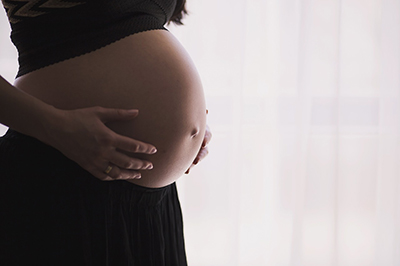
Pregnancy can aggravate myopia while reduce dioptre of tired sight
All you want to know about eye sight problems future moms can have during their pregnancy
During a pregnancy, eye sight problems, especially myopia, can undergo changes. This means that it doesn´t happen to all pregnant women but it is recommendable that you should under-go a routinely check-up during the months of pregnancy and after giving birth. In some cases the changes are beneficial like a decrease in tired sight, but in other cases the myopia can worsen, meaning long-range vision. Although generally speaking, the tendency during pregnancy is to aggravate the myopia, which will benefit the farsightedness. Furthermore, the glaucoma usually improves during pregnancy, due to the beneficial activity of the hormones. In exceptional cases, the endeavours of natural child birth can provoke a slight increase but this is not very common.
According to Dr. Nabil Ragai, medical director of Ophtalmology Services in Quironsalud Hospital in Marbella and San José (Madrid) myopia is the defect which can be most affected during pregnancy and child birth. Nabil insists that generally “and increase in between half and one dioptres during pregnancy”. The cause of this increase is due to fluid retention during the pregnancy, due to hormonal activity. This fluid retention also affects the eye which thinks that there is an increase in the thickness of the cornea and lenses, which modify the curvature.
The increase in curvature can also affect women who do not suffer from myopia. In fact, a great number of women assure that their eye sight worsened during their pregnancy.
In the majority of the cases, the change in curvature of the cornea is temporary, so it is not recommendable to change the graduation of your glasses. After giving birth and the first few months of breast feeding, your eye sight will return to what it was before your pregnancy, due to a decrease of two hormones: progesterone and relaxin.
Although in some women this increases after pregnancy remains. In these cases, Dr. Nabil explains that this proportion is related to the dioptres which one had at the beginning of the pregnancy. “The higher the graduation of the glasses previously, the higher the possibility that the increase in dioptres will not be reversible”
Use of Contact Lenses, yes or no
According to the questions which may arise concerning eye care during pregnancy, we cannot forget the fact of should we use contact lenses or not during the months of pregnancy.
Dr. Nabil explains that during these months the hormones can modify the tear duct as well as thicken the cornea. This can in turn produce intolerance to the use of contact lenses. It is recommendable that in these cases one should change and use glasses up until the end of the pregnancy. And evidently, for these reason one shouldn´t try change from glasses to contact lenses during pregnancy.
The risks in child birth
Some pregnant women who suffer from myopia could have a damaged retina. These conditions occur above all in accentuated myopias, of 6 or more dioptres, although in some exceptional chases it can occur in women with less dioptres. To detect this risk Dr Nabil insists on the necessity of carrying out an extensive study of the eye, a quick examination, non- invasive and secure, which does not affect the foetus
“With the dilation of the pupil using some drops we can detect vascular changes in the back of the eye and we can study the retinas peripheral in order to assure that there are no existing lesions or tears, and if there is an area which could be at risk”, explains Dr Nabil..
In the case of a risk been detected, the peripheral membrane of the retina could break and there is a risk that with the endeavour of a natural birth a haemorrhage could occur in the eye or a retinol tear, this could be sealed with a laser before giving birth, a safe laser, which doesn´t affect the baby. If the retina is deteriorated the obstetrician would be informed in order to programme a caesarean.
These situations are not very common. “In the majority of the cases the condition of the retina does not present a problem, even if there is a high graduation, and it will not affect the process of childbirth”, explain Dr. Nabil.
Controls after childbirth
After giving birth, Dr. Nabil medical director of Ophthalmology Services in Quironsalud in Marbella and San José (Madrid) indicated that it would be necessary to carry out a control in order to assure what the evolution of the myopia has been. In the case of high graduations, the control should be carried out 10 days after childbirth. In the other cases, if no complications have arisen, the revision should be carried out 3 months later, or once breast feeding has finished, in order to graduate the eye sight and assure the condition of the retina.

